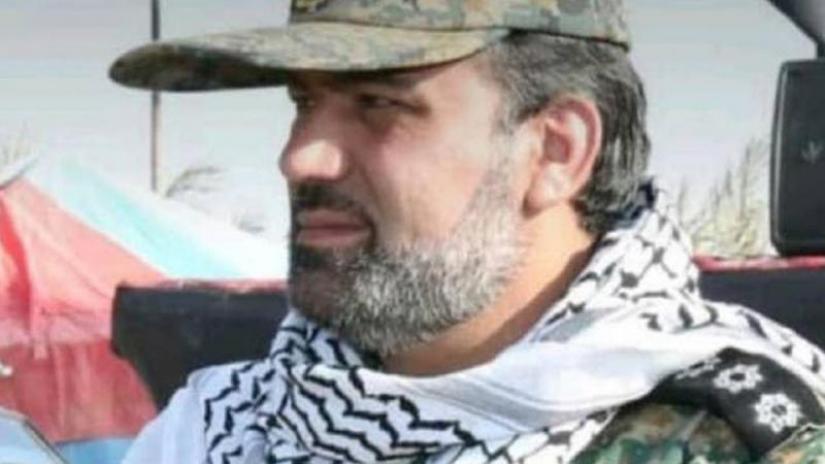 Gunmen in Iran shot dead a commander of the hardline Basij militia who was an ally of Qassem Soleimani, the senior Revolutionary Guards commander killed in a US drone strike in Iraq, the official news agency IRNA reported on Wednesday.
Gunmen in Iran shot dead a commander of the hardline Basij militia who was an ally of Qassem Soleimani, the senior Revolutionary Guards commander killed in a US drone strike in Iraq, the official news agency IRNA reported on Wednesday.
The Basij are under the command of the Guards, the most powerful and heavily armed security force in the Islamic Republic.
IRNA said that Abdolhossein Mojaddami, a Basij commander in the city of Darkhovin in the southwestern province of Khuzestan, was shot on Tuesday in front of his home by two men riding a motorcycle.
There was no immediate claim of responsibility for the attack, IRNA said. It described Mojaddami as one of the “defenders of the shrine”, a reference used to describe members of security forces who have fought in recent conflicts in Iraq or Syria.
Soleimani, a general who oversaw Iran's drive to extend its influence across the Middle East, was killed at Baghdad airport on Jan. 3, prompting Iran to fire missiles at US forces in Iraq in an escalation of their confrontation over Tehran's nuclear programme and broader security issues in the region.
On Saturday, the United States said it had imposed sanctions on a Revolutionary Guards general in Khuzestan who commanded units Washington accused of responsibility for killing anti-government protesters in November.
The US State Department cited “multiple” media reports and information submitted by Iranians through its "Rewards for Justice" tipline saying that Guards units killed as many as 148 protesters with machinegun fire and by setting fire to a marsh in which protesters took cover in the city of Mahshahr.
Iranian authorities disputed the US account, saying security forces confronted “rioters” who they described as a security threat to petrochemical plants and to a key energy supply route that, if blocked, would have created a crisis.
Protests in November were initially sparked by hikes in gasoline prices but demonstrators quickly expanded their demands to cover calls for more political freedom and other issues.
The unrest prompted the bloodiest crackdown on demonstrators in the 40-year history of the Islamic Republic, which blamed foreign enemies for rising tensions.
 International
International
41314 hour(s) 4 minute(s) ago ;
Morning 04:58 ; Friday ; Jul 04, 2025
Soleimani’s militia ally shot dead in southwest Iran
Send
Reuters
Published : 08:59, Jan 23, 2020 | Updated : 09:02, Jan 23, 2020
Published : 08:59, Jan 23, 2020 | Updated : 09:02, Jan 23, 2020
0 ...0 ...
/st/
Topics: Top Stories
- KOICA donates medical supplies to BSMMU
- 5 more flights to take back British nationals to London
- Covid19: Rajarbagh, Mohammadpur worst affected
- Momen joins UN solidarity song over COVID-19 combat
- Covid-19: OIC to hold special meeting
- WFP begins food distribution in Cox’s Bazar
- WFP begins food distribution in Cox’s Bazar
- 290 return home to Australia
- Third charter flight for US citizens to return home
- Dhaka proposes to postpone D8 Summit
Unauthorized use of news, image, information, etc published by Bangla Tribune is punishable by copyright law. Appropriate legal steps will be taken by the management against any person or body that infringes those laws.
Bangla Tribune is one of the most revered online newspapers in Bangladesh, due to its reputation of neutral coverage and incisive analysis.
F R Tower, 8/C Panthapath, Shukrabad, Dhaka-1207 | Phone: 58151324; 58151326, Fax: 58151329 | Mob: 01730794527, 01730794528


